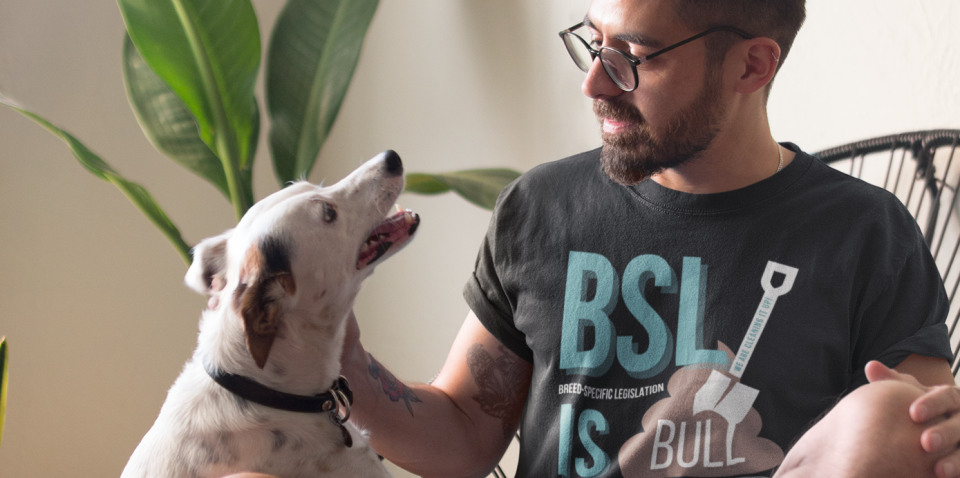Contact your state’s insurance commissioner and tell them how breed restrictions have negatively impaced you and/or your community.

Breed restrictions in housing insurance policies decrease the availability of affordable and secure housing, prevent diversification, increase the number of dogs in shelters, and separate families from their pets.
Excluding dogs excludes people and insurance companies know it.

The insurance industry uses arbitrary dog breed lists to deny homeowners and renters insurance coverage and discriminate against insurance consumers.
People are unable to get insurance or must pay a higher premium because the insurance company deems their dog “dangerous” based solely on how it looks.
These lists are not based in scientific research, nor are they based on a dog’s individual behavior or the owner’s history of responsible dog ownership.
As we say in our Ending Breed Restrictions overview, the stereotyping of “pit bulls” and other dogs is a microaggression used to further marginalize Black and Brown people, as well as those on a low income. It has been coded in our society throughout the decades and is a product of systemic racism and classism.
Excluding dogs excludes people and insurance companies know it.
The insurance industry has a long history of racism through what is called “redlining.” The practice was named after the red lines lenders would use to identify neighborhoods they deemed high risk. What made them “high risk” in the eyes of the financial industry? They were neighborhoods predominately occupied by Black people and POC. That’s it. In other words, it was pure racism.
This racism extended to other industries, as well.
The National Association of Insurance Commissioners (NAIC) admits that racism is pervasive within the industry and has formed a special commission to address the issue.
Dog breed restrictions are just another form of redlining. Insurers use these restrictions as a way to flag individuals society most associates with the targeted dogs and deny them housing insurance. This contributes to the housing disparity and prevents communities from being diversified.
While pets are property under the law, they are a critical member of the family to most of the Americans who own them. A 2016 study at Duke University found that many people will mistakenly call loved ones by their dog’s name. This is because our brains put pets and human loved ones in the same category – family.
For many, breed restrictions in housing insurance create a terrible choice: having a safe, affordable, and accessible home or separating from a beloved family member.
These restrictions do not simply run the very real risk of separating dogs from owners, they separate and traumatize families.
Financial and Practical Consequences
Breed ban lists reduce available and accessible housing. In order to keep their pet, people may need to move to a more expensive area, an area further away from their job, change their child’s school, change jobs, or a myriad of other issues that can cause financial strain and reduce diversification in communities.
When people are unable to keep their dog, the dog often ends up in a shelter. This puts a strain on community resources and funds – resources and funds that would better serve the community elsewhere.
Contact your state’s insurance commissioner and tell them how breed restrictions have negatively impaced you and/or your community.
Help us collect data about the personal impact of breed restrictions by taking our survey.
Donate to help fund our outreach campagins and our grantee programs.
